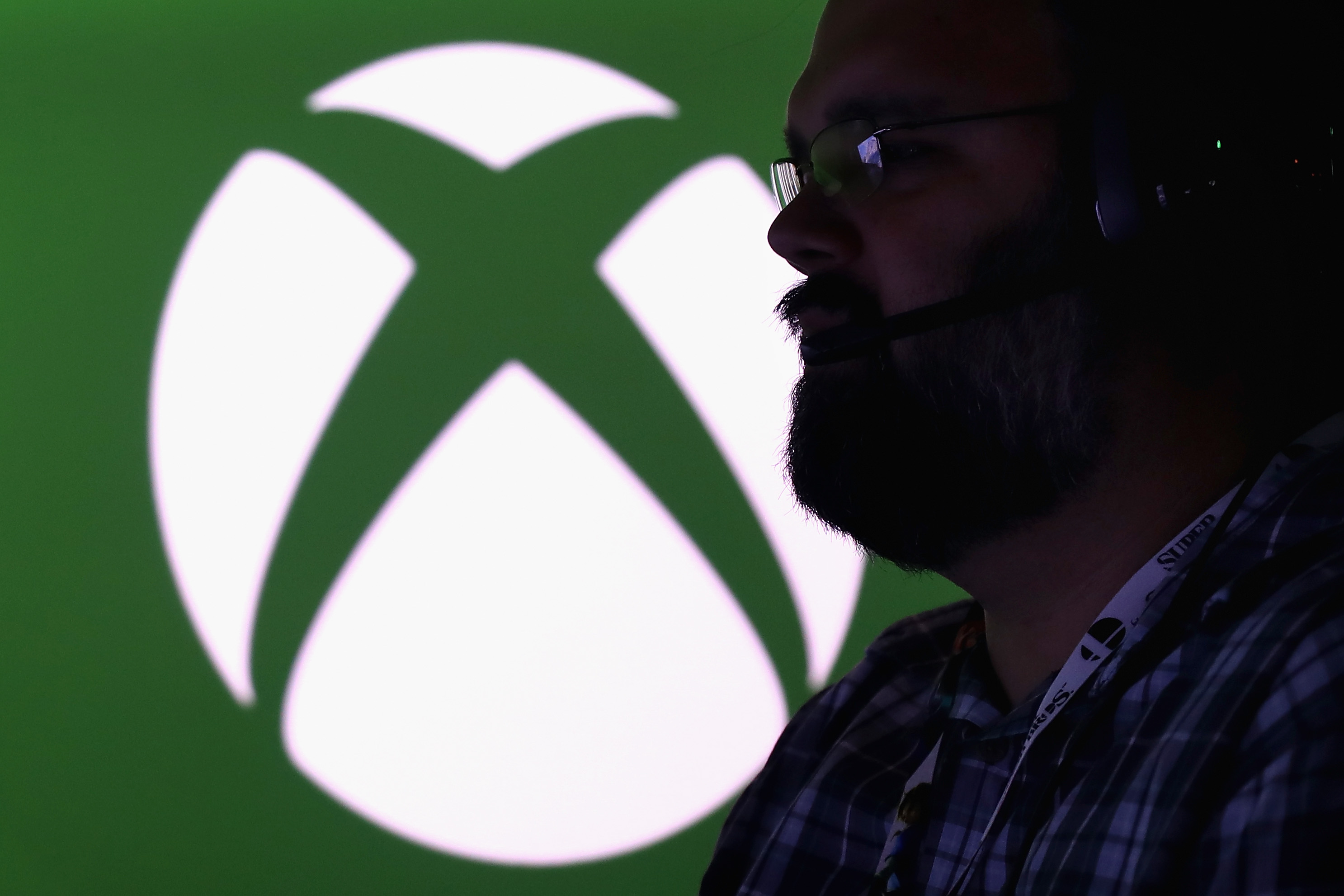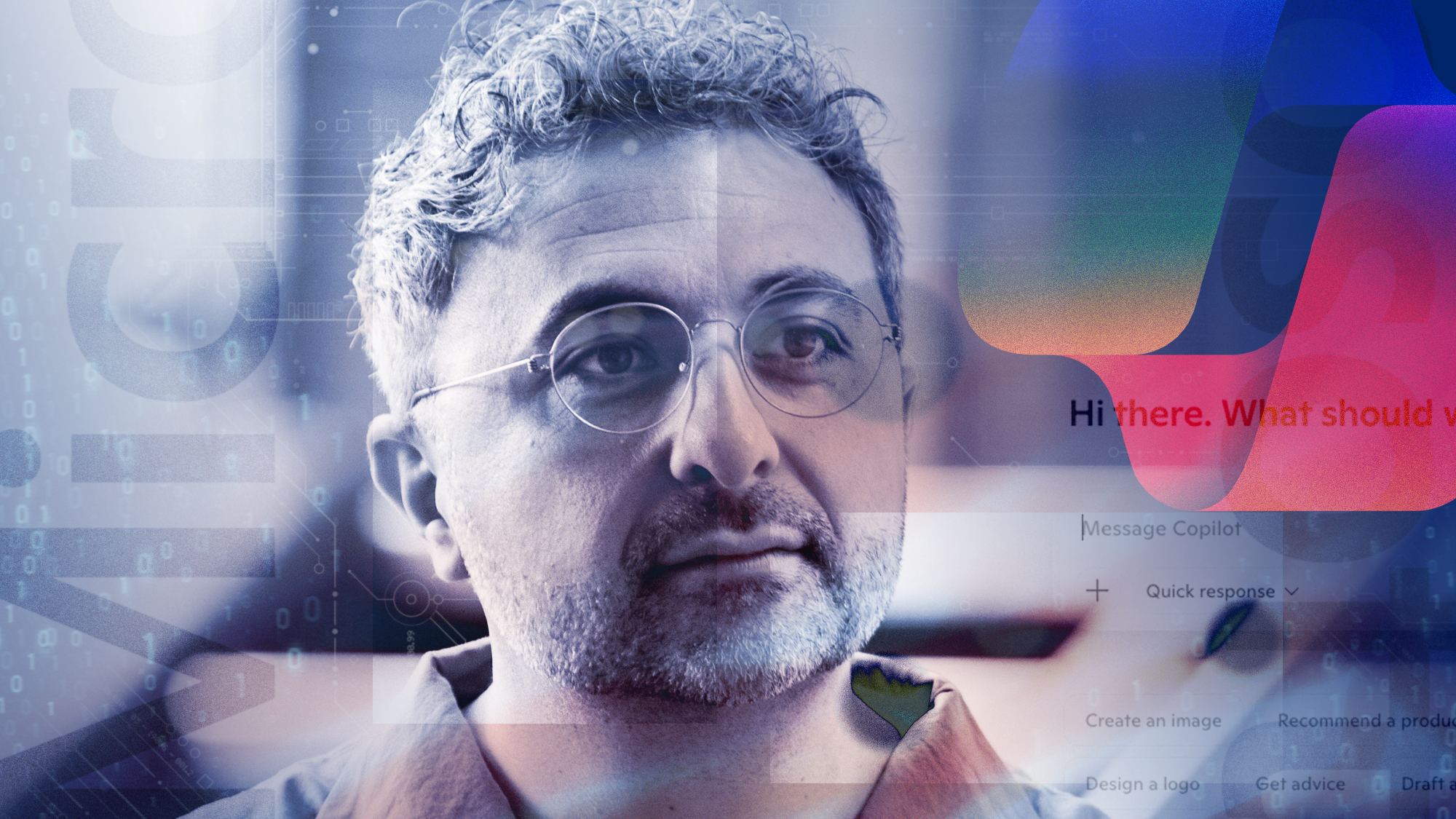Microsoft and Sony partnership: why the alliance proves Google Stadia is a real threat
Gaming rivals strike a deal to develop cloud gaming services and AI systems

A free daily email with the biggest news stories of the day – and the best features from TheWeek.com
You are now subscribed
Your newsletter sign-up was successful
Fierce gaming rivals Microsoft and Sony have formed an unlikely alliance to take on Google’s upcoming Stadia service.
The agreement will see the two companies “develop future cloud solutions” together using Microsoft’s Azure cloud computing platform, says Gamespot.
Sony will also use Azure for its “own game and content-streaming services”, and to provide “better tools” to content creators, the gaming news site says.
The Week
Escape your echo chamber. Get the facts behind the news, plus analysis from multiple perspectives.

Sign up for The Week's Free Newsletters
From our morning news briefing to a weekly Good News Newsletter, get the best of The Week delivered directly to your inbox.
From our morning news briefing to a weekly Good News Newsletter, get the best of The Week delivered directly to your inbox.
Microsoft, meanwhile, has pledged to work with Sony on the development of semiconductors, which are used for processing in most electronic devices, as well as artificial intelligence (AI) systems, says Eurogamer.
Sony chief Kenichiro Yoshida said: “Microsoft has been a key business partner for us, though of course the two companies have also been competing in some areas.
“I believe that our joint development of future cloud solutions will contribute greatly to the advancement of interactive content.”
Google Stadia is now a serious threat
A free daily email with the biggest news stories of the day – and the best features from TheWeek.com
Though Microsoft’s Xbox and Sony’s PlayStation brands were not mentioned during the deal’s announcement, it’s widely believed that the partnership will be used to spawn a video game streaming service to rival the upcoming Stadia platform from Google.
Stadia, which was unveiled in March at the Game Developers Conference in San Francisco, is the search giant’s first foray into the gaming world. It takes the form of a subscription service, where users pay a monthly fee to stream a host of games in 4K at 60fps over the internet.
No company has yet created a successful video game streaming service and the limited details available on Stadia, such as price and performance on low-speed internet systems, means it’s “impossible to speculate about Stadia’s impact” until it launches later this year, says Mashable.
But the new partnership between Microsoft and Sony suggests that the tech giants see Stadia as a far greater threat than the gaming community suspected.
Piers Harding-Rolls, an analyst at IHS Markit, told the BBC that the partnership “is the best choice” for the two firms to maintain their position in the gaming market, despite “the competitive dynamic between Xbox and PlayStation.
“Working together they have a better chance to head off competition from the likes of Google, which has gone on to dominate the last wave of technology disruption in the mobile space alongside Apple,” he said.
There’s also talk of Amazon entering the fray, while Chinese tech giant Tencent “is well underway with its own cloud gaming prospect”, The Daily Telegraph says.
Plus, with Microsoft rumoured to be launching Xbox services on Nintendo’s Switch console, game companies may have to put their fierce rivalries aside to fend off competition from “wealthy upstarts”, the newspaper says.
What does this mean for Xbox and PlayStation brands?
There’s no word on how the deal will influence Microsoft’s Xbox and Sony’s PlayStation brands, but don’t expect the partnership to result in a co-developed console.
There are rumours aplenty about Sony’s upcoming PlayStation 5 console, which is due to be previewed later this year before going on sale towards the end of 2020.
Microsoft has also made no secret about the development of its next line-up of Xbox consoles. Phil Spencer, head of Xbox, said at the Electronic Entertainment Expo (E3) last year that work was well under way on the next generation of Xbox systems, which are commonly referred to as the “Scarlett” series.
But with Microsoft now laying the foundations for Sony’s cloud gaming service - along with the possible launch of the Xbox Game Pass on Nintendo’s Switch - the idea that gamers one day find themselves playing PlayStation titles on their Xbox consoles no longer seems far-fetched.
-
 Tourangelle-style pork with prunes recipe
Tourangelle-style pork with prunes recipeThe Week Recommends This traditional, rustic dish is a French classic
-
 The Epstein files: glimpses of a deeply disturbing world
The Epstein files: glimpses of a deeply disturbing worldIn the Spotlight Trove of released documents paint a picture of depravity and privilege in which men hold the cards, and women are powerless or peripheral
-
 Jeff Bezos: cutting the legs off The Washington Post
Jeff Bezos: cutting the legs off The Washington PostIn the Spotlight A stalwart of American journalism is a shadow of itself after swingeing cuts by its billionaire owner
-
 Will AI kill the smartphone?
Will AI kill the smartphone?In The Spotlight OpenAI and Meta want to unseat the ‘Lennon and McCartney’ of the gadget era
-
 Why 2025 was a pivotal year for AI
Why 2025 was a pivotal year for AITalking Point The ‘hype’ and ‘hopes’ around artificial intelligence are ‘like nothing the world has seen before’
-
 Has Google burst the Nvidia bubble?
Has Google burst the Nvidia bubble?Today’s Big Question The world’s most valuable company faces a challenge from Google, as companies eye up ‘more specialised’ and ‘less power-hungry’ alternatives
-
 Microsoft pursues digital intelligence ‘aligned to human values’ in shift from OpenAI
Microsoft pursues digital intelligence ‘aligned to human values’ in shift from OpenAIUNDER THE RADAR The iconic tech giant is jumping into the AI game with a bold new initiative designed to place people first in the search for digital intelligence
-
 How the online world relies on AWS cloud servers
How the online world relies on AWS cloud serversThe Explainer Chaos caused by Monday’s online outage shows that ‘when AWS sneezes, half the internet catches the flu’
-
 Is the UK government getting too close to Big Tech?
Is the UK government getting too close to Big Tech?Today’s Big Question US-UK tech pact, supported by Nvidia and OpenAI, is part of Silicon Valley drive to ‘lock in’ American AI with US allies
-
 Google: A monopoly past its prime?
Google: A monopoly past its prime?Feature Google’s antitrust case ends with a slap on the wrist as courts struggle to keep up with the tech industry’s rapid changes
-
 South Korea's divide over allowing Google Maps
South Korea's divide over allowing Google MapsTalking Points The country is one of few modern democracies where the app doesn't work